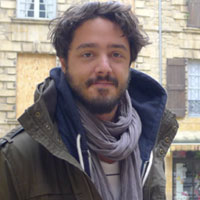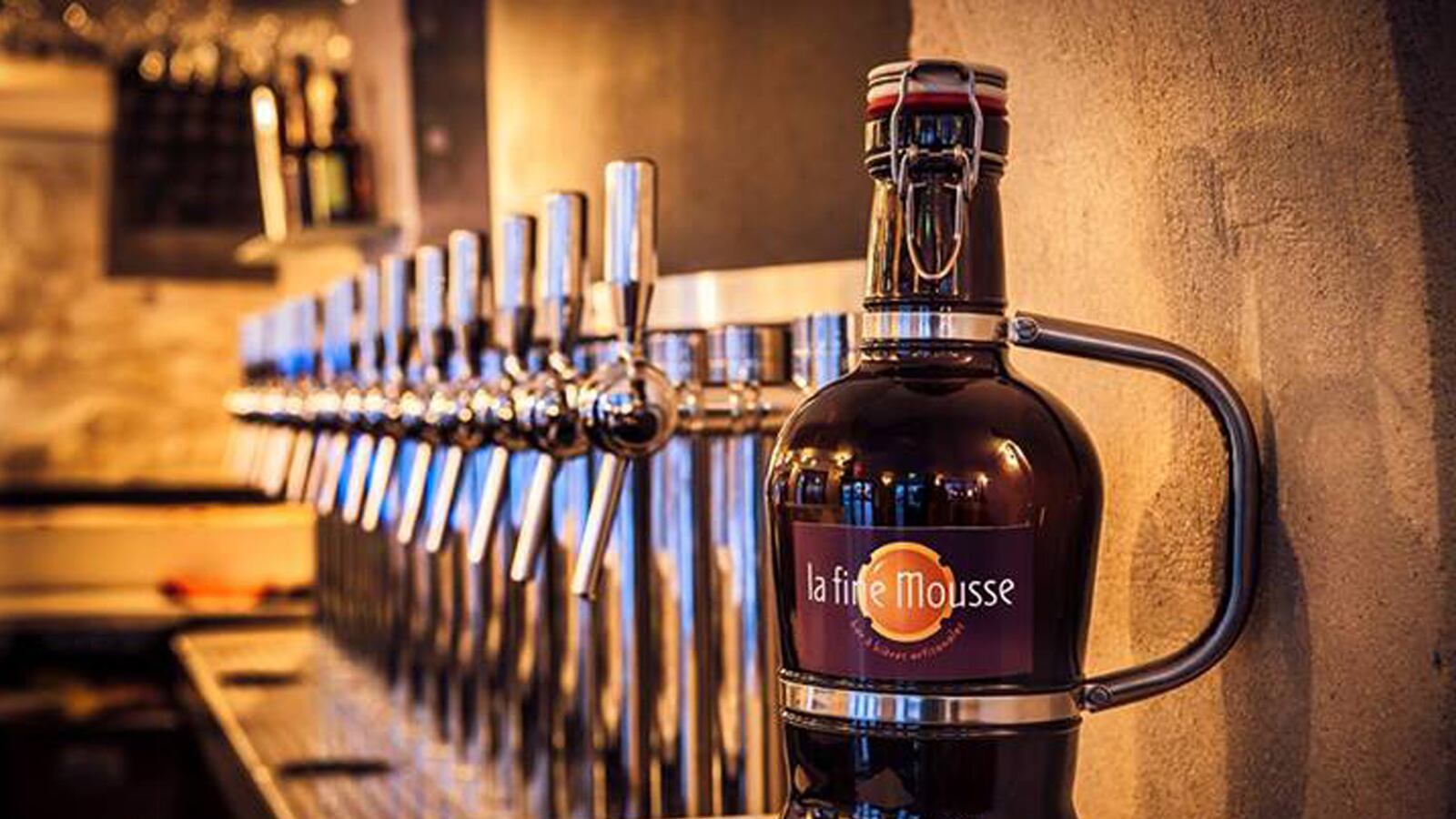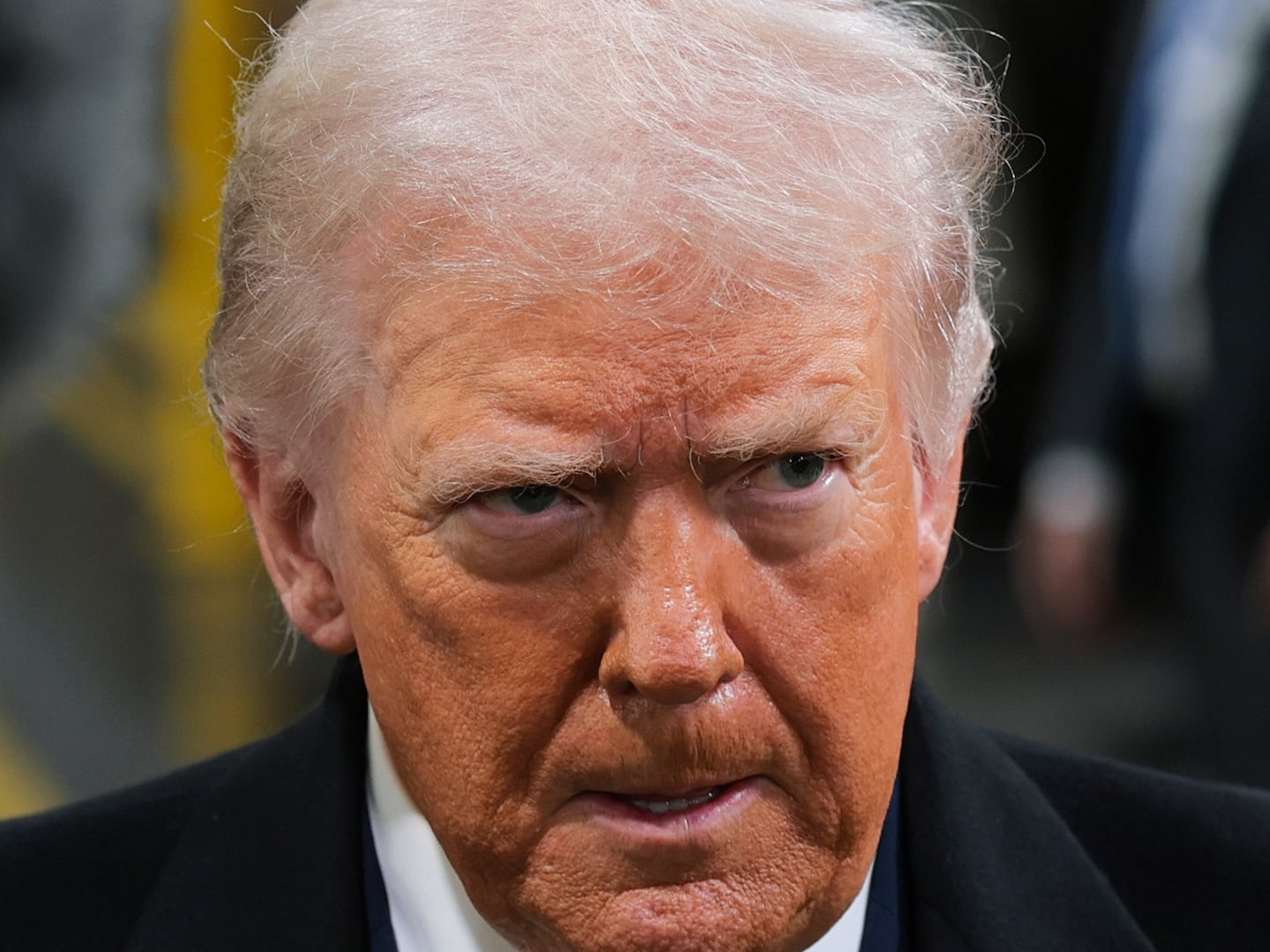It’s almost 8 p.m. I am waiting at the Chateau Rouge metro station deep in Paris’s 18th arrondissement for Phillip, an American expat and craft-beer aficionado. The neighborhood is called Goutte d’Or, which translates to “drop of gold,” and it isn’t exactly the Paris you see in postcards. Its residents are mainly North and sub-Saharan African. People scurry past me while eating freshly roasted corn on the cob. It’s noisy, crowded, and alive. While I wait, three armed gendarmerie officers bound up the stairs from the metro and converge on a hooded man selling things on the corner of the street. Shortly after, Phillip arrives.

It is here, in this dynamic community, that renegade brewmaster Thierry Roche is fermenting his own drops of gold at the partly crowd-funded Brasserie de la Goutte d’Or—the only brewery that is actually in Paris. When Phillip and I arrive, Thierry is squeegeeing puddles of soapy water from underneath the oak beer tanks and out the front door. He is wearing jeans, a T-shirt, and bright white knee-high rubber boots. He admits to us that most of the time he is more of a janitor than a brewmaster. I like him already.
After a few minutes of small talk, Thierry whips out a few glasses and bottles. His unfiltered, unpasteurized, 100 percent organic beers, brewed in small batches, carry the names of local streets and districts in Goutte d’Or. He opens a bottle of Ernestine, an IPA enriched with rooibos and cola nuts that he bought at the local open-air market Marché Dejean. It’s quite bitter and has a subtle fruitiness. It goes down fast. Then we try his Charbonnière. At 7.5 percent alcohol, it’s right up my alley. It’s an amber beer with smoked malts that pours a dark caramel color with a small white head. It’s not overly carbonated or refrigerated, so all the smoky flavors come bursting forward.
I ask Thierry if his fellow Parisians are really ready for the idea of a hip, urban craft brewery. “When you go into rural France,” he responds, “people know the local breweries, they know the beers. They have a relationship with the brand and with the product. So the French people are ready for this. Especially in Paris. It’s an open market here.” And he’s right. France is no stranger to the idea of a local brewery.
At the end of the 19th century, France had more than 2,800 breweries. By 1975, the number had plunged to a mere 23. Some blame the decline on corporate behemoths like Kronenbourg, which cannibalized the little brewers. Others point to the two world wars, which claimed the lives of the many men who brewed beers, and drank them, all over rural France. Perhaps, like many things, it’s a combination of both. Today, the number of breweries in France has increased to more than 500. Many of them take a page out of the brasserie history books and maintain small, local operations.
Thierry pours us a glass of his Myrha, a blonde beer made with the essence of dates. It’s a murky yellow in the glass and has a pleasant aroma. The taste is rough and crafty.
“Simon from La Cave à Bulles has invited us to a private beer tasting he is hosting tonight at his shop,” Phillip says. “He promises that we’ll leave the place quite happy.” We take a few minutes to finish our beer with Thierry. Shortly after, we’re in an Uber car headed to the second oldest beer shop in all of Paris.
The car drops us off on Rue Rambuteau in the Second Arrondissement, and we walk up the narrow cobblestone street to Simon Thillou’s La Cave à Bulles. Phillip introduces me to Simon as a Canadian journalist interested in French beer. “The first thing you need to know about French beer,” Simon begins, “is never order something called Desperados.” He is referring to the skunky, overly sweetened, tequila-flavored pigswill brewed by Fischer in France and owned, of course, by Heineken. Desperados is the antithesis of French craft brewing.
Simon’s shop feels like a special kind of heaven, half man-cave, half wine-cave. “We have over 350 different beers here,” he explains to me as I sit down at the rustic wooden tasting table in the middle of the shop. “Around two-thirds are brewed in France. This shop has the largest selection of French beers in Paris.” He is right. Other hip beer caves like The People’s Drug Store in Montmartre or Brewberry in the Fifth Arrondissement seem to sell more European imports. Simon, who has been running La Cave à Bulles for almost seven years, is super-friendly, a tad awkward, and unquestionably passionate about French beer. Much like the duality of his shop, Simon is half goateed-rocker, half cicerone sage.
Like a savant, he navigates us through a tasting of three French beers, finished off by a pairing with 18-month-old comté cheese. It feels a lot like a wine tasting. First we try Northmaen Blanche, a citrusy wheat beer brewed in Normandy. After that, we try an extra special bitter beer brewed by La P’tite in Sommières, which is close to Nîmes in southern France. They don’t call it an “extra special bitter” for nothing—it delivers a punch in the face of bitterness. Lastly, we taste a smooth Volcelest Triple from Brasserie de la Vallée de Chevreuse, about 40 minutes outside Île-de-France.
During the hour-long tasting, a steady stream of customers comes through the shop: hipsters in skinny jeans, businessmen in pressed white shirts, middle-aged women with fancy handbags, expats and locals, tourists and regulars. All scoop up bottles from the shelves like Easter eggs. Simon kisses his clients on the cheeks, gives them intuitive recommendations in multiple languages, and, overall, demonstrates his virtuosity as one of the torchbearers of Paris’s beer revolution.
I ask Simon to compare the emerging craft beer scene in Paris to the wildly successful craft beer scene in the United States. “French micro-brewing is just starting now,” he says. “I would guess that it’s probably like what it was in the United States 15 years ago, with micro-breweries popping up everywhere. Now, in New York, almost every bar has craft beers on tap.” I ask if he sees a similar future for French craft beers. “Let’s talk about that in 10 years,” he says, “but I wouldn’t be surprised. It’s been very different in the past couple of years here. Something has really kicked off.”
In 2009, the overall consumption of French beer plateaued at about 20 million hectoliters per year. In 2010, it fell by 1.7 percent. Breweries in France, however, saw a 4.5 percent increase in revenue, to 2.3 billion euros. The welcome upswing was all thanks to the newly emerging specialty beer market. While total alcohol consumption in France continues to slide, Simon is right. Parisians who enjoy a quality brew are starting to find a local scene to call their own.
By 10:30 p.m., Phillip and I are on the busy metro heading to La Fine Mousse in the lively Oberkampf neighborhood of the 11th Arrondissement. We’re both feeling pretty good. Simon overdelivered on his promise.
We’re lucky to find a comfortable banquette in the packed craft beer-focused bar, the first of its kind in Paris. It’s the kind of place you’d expect to see in the gentrified districts of Toronto or New York. Old paint curls off the walls. Small Persian carpets overlap on the floor. Young men growing Movember moustaches are studying elaborate beer menus like ninth-grade calculus textbooks to a soundtrack of the Beastie Boys and Stevie Ray Vaughan.
Phillip orders us a Perle des Vignes that was brewed with the mash of Riesling and Gewürztraminer grapes in Alsace, France; a fresh IPA from Outland, France; and a light and earthy Brasserie de la Lune twin bitter from Chabeuil in southwest France. Phillip also orders us a mixed meat and cheese platter with aged comté, Alsacian tomme, chèvre, salami, and duck confit. It all goes well with the strong, crafty flavors of the beers.
Romain Thieffry, one of four partners in the business, joins us for a chat. He brings us more duck confit, and I love him for it. “We have 20 specialty beers on tap,” Romain explains, “and another 155 different beers in the bottle. We’ve been here almost a year, and people in this neighborhood now know more about beer than any other region of Paris, and I am quite proud of that.” I ask Romain if the French, with their knack for refinement and love of strong flavors, are the perfect audience for unique, artisanal beers. “It’s true,” he responds, “we’ve always been curious in new tastes.”
We finish another round of beers, and I almost forget that I am here to work. Romain leaves for a moment and comes back with an expensive bottle of Page 24 Brune Viellie en fût de chêne from France’s Brasserie Saint Germain. It’s the last bottle in the bar and one of the last bottles of the brewery’s first batch in all of France. The large bottle is served slightly on its side in a wicker basket so the sediment can sink to the bottom. After carefully pouring the beer while it’s still in the basket, Romain tells us to warm it in the glass with our hands before drinking it. It’s dark, oaky, slightly sour, and makes for the perfect final drink of the evening—the pièce de résistance, if you will.
We say goodbye to Romain and head to a sandwich shop nearby to soak up some of the alcohol. I had promised myself I wouldn’t summon the “raising the bar” cliché in an article about beer, but it becomes clear that passionate renegades like Thierry, Simon, and Romain are really doing it. I came to Paris for the specialty beers, and I left with new friends. It’s more than a scene, it’s a community. And it’s cheery and inclusive and makes for one hell of a good buzz. Vive la révolution.
Jeff’s Paris Beer Tour:
Brasserie de la Goutte d’Or
28 Rue de la Goutte d’Or, 75018 Paris, France
www.brasserielagouttedor.com/
La Cave à Bulles
45 Rue Quincampoix, 75004 Paris, France
+33 1 40 29 03 69
http://www.caveabulles.fr
La Fine Mousse
6 avenue Jean Aicard- 75011 Paris
+33 (0)9 80 45 94 64
www.lafinemousse.fr






